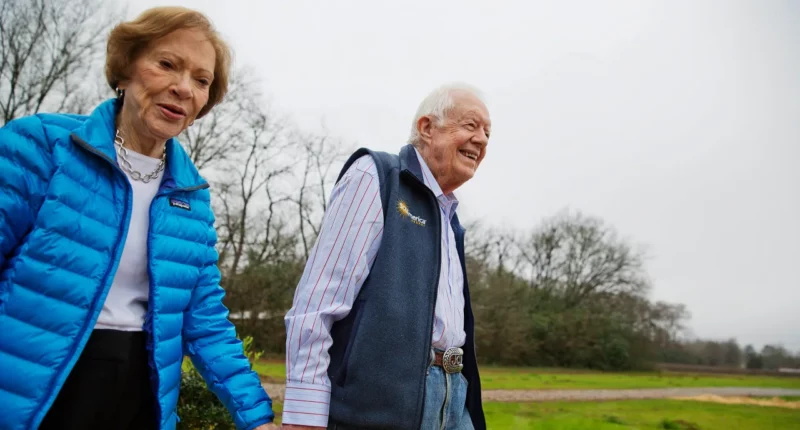At 99 years old, former President Jimmy Carter is facing a new and challenging role: that of a widower. His wife of 77 years, Rosalynn, passed away on November 19, leaving Carter to navigate the grief that comes with losing a spouse. This emotional and physical exhaustion is intensified for someone whose health is already fragile.
The couple’s deep connection and love were evident throughout their lives and work. Carter expressed the profound loss, stating, “Rosalynn was my equal partner in everything I ever accomplished. She gave me wise guidance and encouragement when I needed it. As long as Rosalynn was in the world, I always knew somebody loved and supported me.”
While Carter has defied health odds in the past, including successful treatment for melanoma and recovery from brain surgery, the emotional toll of grief is a unique challenge. Dr. Deborah Carr, a sociologist at Boston University, emphasizes that for those with close-knit relationships like the Carters, every aspect of everyday life changes, leading to a profound loss.
Grieving for a spouse can be both physically and emotionally stressful. Dr. Dawn Carr, a gerontologist at Florida State University, notes that widowhood is one of the most difficult experiences, impacting health significantly. Factors such as the expectedness of the loss and available resources, including financial, emotional, and spiritual support, influence how well individuals cope with grief.
The Carters, known for their deep faith, regularly attended church together, read the Bible daily, and drew strength from their spiritual beliefs. Social support, especially from family, is crucial during this challenging time. Dr. Deborah Carr emphasizes the importance of social support, which includes practical help, listening, and sharing memories.
Research indicates that nearly everyone losing a longtime partner experiences a significant increase in depressive symptoms and loneliness, lasting for years. Men and younger widowers, in particular, may struggle more. Studies show that men who lose a spouse, especially at a younger age, face a higher risk of death within the next year. This is attributed to the loss of caregiving, reminders for health maintenance, and daily companionship.
For caregivers, the physical toll can be pronounced. Caregivers often neglect their own health needs while caring for a dying spouse, leading to a crash in health after the spouse’s death. As former President Jimmy Carter navigates this challenging period, the impact of grief on older surviving spouses is a poignant reminder of the emotional and physical complexities involved.





